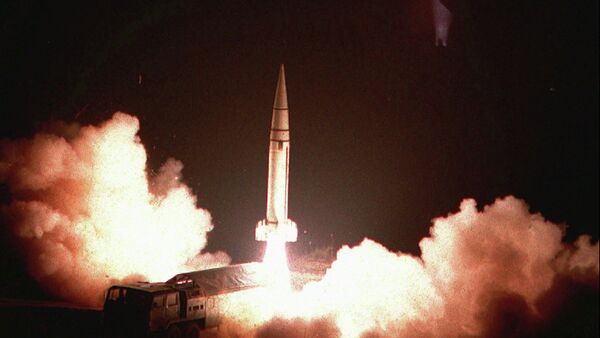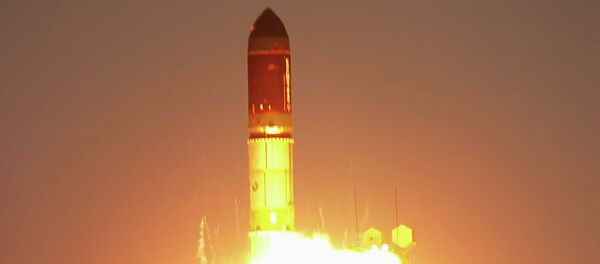In 2007, a Chinese weather satellite circling in polar orbit was struck by a missile fired from the Sichuan province. This marked the first successful satellite interception test since the United States shot down its own P78-1 satellite in 1985.
"But just seeing the nature of these types of activities show how committed they are to a counter-space campaign," Admiral Cecil D. Haney, head of the Omaha-based nuclear forces command, said during a news conference at the Pentagon on Tuesday. "So we have to be ready for any campaign that extends its way into space."
Beijing publicly opposes the development of so-called space weapons, agreeing with the general consensus that Earth’s orbit should remain a combat-free zone. The Chinese government insists that the tests are being conducted to strengthen defensive capabilities. But that has done little to allay Haney’s fears.
"The threat in space, I fundamentally believe, is a real one," Haney said. "It’s been demonstrated."
"The remainder of this decade will likely see China continue to test ground-launched ASATs and begin to test air-launched ASATs," Fisher, a senior fellow at the International Assessment and Strategy Center told the Free Beacon.
"However," he added, "Chinese sources indicate that laser-armed space platforms may not be ready until later in the 2020s. By this time China will also have lofted a dual-use space station and may have tested dual-use space planes."
Haney also mentioned Iran, which he claims recently launched a space vehicle which "could be used as a long-range strike platform."
Yet despite criticism of a perceived space weapons threat from other nations, the US is not without its own anti-satellite capabilities.
"I will leave it at we are working for our space protection program," Haney said in response to a question about US space capabilities, and indeed, the US is providing ample funding for research into space defense. During fiscal year 2016, the Air Force has been granted $33.3 million toward research and development of its "space protection program," a more-or-less steady annual sum already budgeted through 2019.
This is Haney’s main reason for holding his news conference. Aside from taking a moment to criticize the “provocative” actions of President Vladimir Putin, the admiral concludes by warning about the dangers of US budget cuts.
"As a nation, we cannot simply afford to underfund our strategic capabilities," he said. "Any cuts to the president’s budget…will hamper our ability to sustain and modernize our joint military forces and put us at a real risk of making our nation less secure and able to address future threats."





